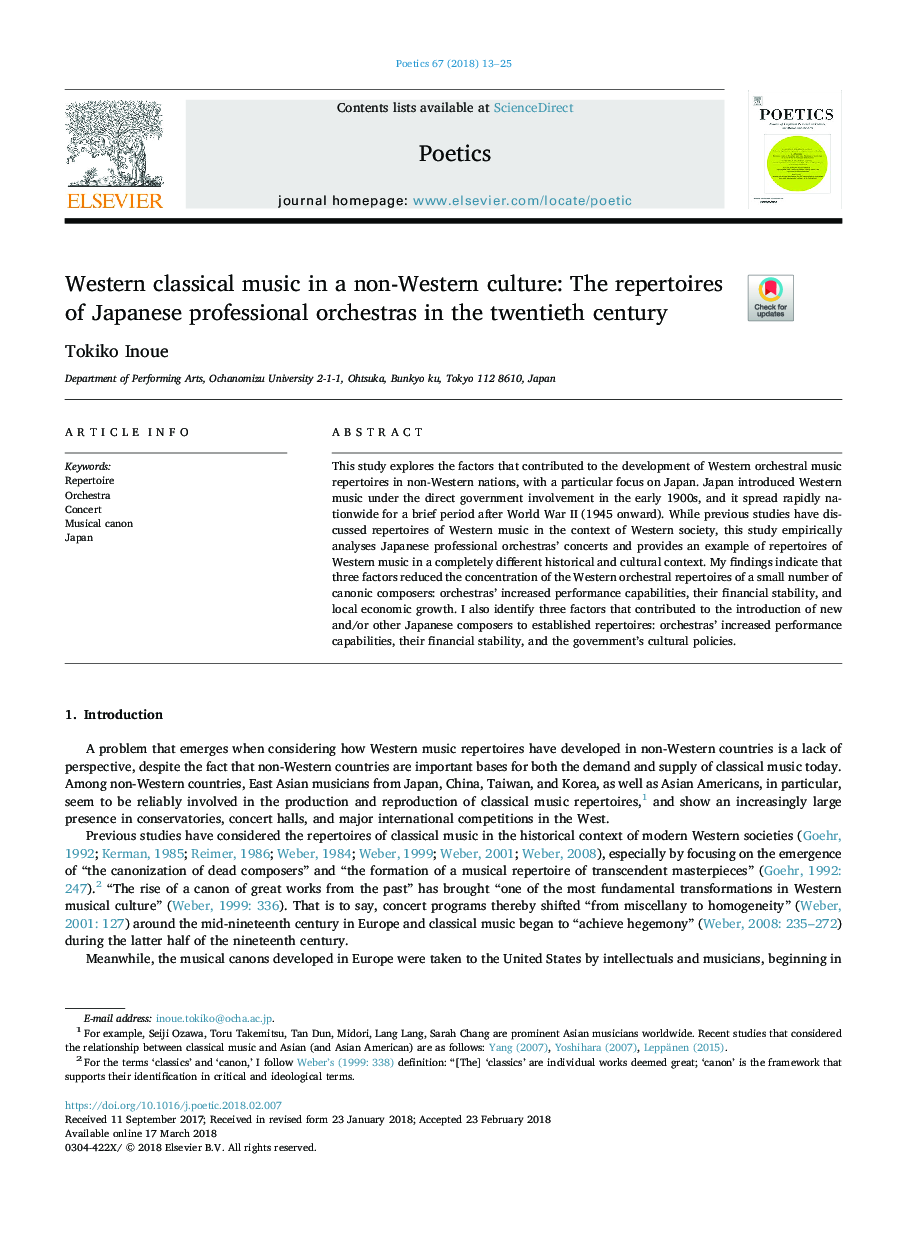| Article ID | Journal | Published Year | Pages | File Type |
|---|---|---|---|---|
| 7538079 | Poetics | 2018 | 13 Pages |
Abstract
This study explores the factors that contributed to the development of Western orchestral music repertoires in non-Western nations, with a particular focus on Japan. Japan introduced Western music under the direct government involvement in the early 1900s, and it spread rapidly nationwide for a brief period after World War II (1945 onward). While previous studies have discussed repertoires of Western music in the context of Western society, this study empirically analyses Japanese professional orchestras' concerts and provides an example of repertoires of Western music in a completely different historical and cultural context. My findings indicate that three factors reduced the concentration of the Western orchestral repertoires of a small number of canonic composers: orchestras' increased performance capabilities, their financial stability, and local economic growth. I also identify three factors that contributed to the introduction of new and/or other Japanese composers to established repertoires: orchestras' increased performance capabilities, their financial stability, and the government's cultural policies.
Keywords
Related Topics
Social Sciences and Humanities
Arts and Humanities
Arts and Humanities (General)
Authors
Tokiko Inoue,
